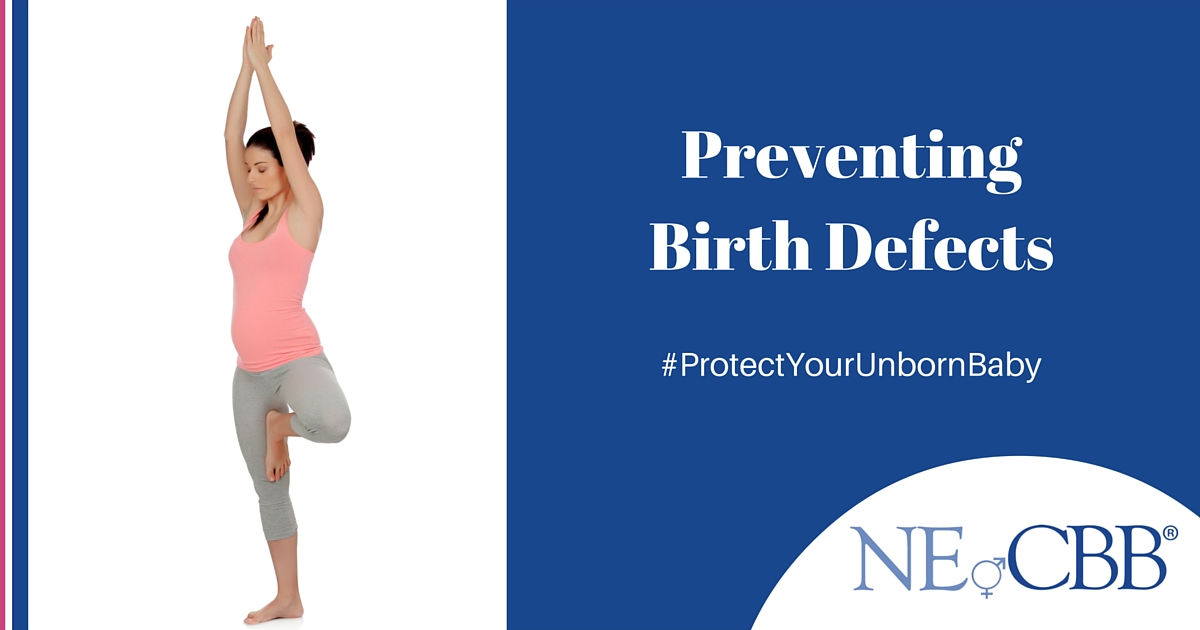 If you are pregnant or are planning to become pregnant in the near future, there are important steps you can take to reduce the risk of your child being born with serious birth defects.
If you are pregnant or are planning to become pregnant in the near future, there are important steps you can take to reduce the risk of your child being born with serious birth defects.
Before Pregnancy:
Adopt a healthy diet and lifestyle.
What better motivation is there to get healthy than to improve your future child’s health? Eat a well-balanced diet including plenty of fruits and vegetables. Also, take a daily prenatal multivitamin to ensure you are meeting your requirements of important nutrients. If you smoke cigarettes, it is strongly advised that you quit before you get pregnant. In addition to the well-known adverse effects on your own health, smoking carries a number of additional risks for pregnancy. This is also a good time to cut back on alcohol and caffeine consumption.
Get at least the minimum recommended allowance of folate.
Also known as Vitamin B9, folate is best sourced from foods such as dark green veggies. Add a cup of folate-rich spinach, broccoli, or asparagus to your meal. Fill up with a delicious multi-bean chili. If you don’t think you can get the recommended 400 mcg from food alone, your prenatal vitamin may contain folic acid which is the synthetic form of folate. Many prepared foods and cereals are also fortified with folic acid.
Book an appointment with your health care provider.
If you’ve been going in for routine annual physicals, you’re on the right track! When you are thinking about becoming pregnant, let your doctor know and discuss any factors that may affect your pregnancy or chances of becoming pregnant. You’ll also want to review your family history in detail, and potentially explore genetic screenings if you have concerns about birth defects.
During Pregnancy:
Keep your body clear of toxins.
Alcohol, tobacco, and illicit drugs all carry proven risks to both mother and baby. Caffeine also poses some risk and should be limited. If you find you are struggling to give up any of these things, it’s critical that you be honest with your health care provider and get support. Help is available.
Maintain a healthy diet and avoid certain foods.
Continue to eat fresh fruits, vegetables, and whole grains. Increase your folate or folic acid intake. Don’t eat fish that may have high levels of mercury, such as shark, marlin or swordfish; tuna is generally safe in limited amounts. Also, be sure to avoid any food known to have the potential of listeria contamination, which can cause miscarriage. For example, steer clear of undercooked meat, raw eggs or shellfish, smoked fish, soft cheeses, and pâté.
3. Monitor potentially harmful exposures at home and at work. Avoid using chemicals such as paint, and some cleaning products. If you own or work with animals, be aware that lambs, sheep, and cats may be contaminated with harmful germs. Discuss working conditions with your healthcare provider if you have any additional questions or concerns.
4. Beware certain vitamins and supplements. Be cautious with vitamin supplements beyond the prenatal multivitamin approved by your doctor. In particular, be extra careful not to take excess Vitamins A, D, or E while pregnant. Talk to your doctor before taking any medications, including those previously prescribed, as well as over-the-counter and herbal supplements.
Stay up to date on pregnancy health news and umbilical cord blood banking information. Subscribe to our monthly email newsletter.